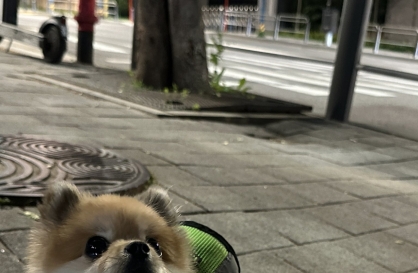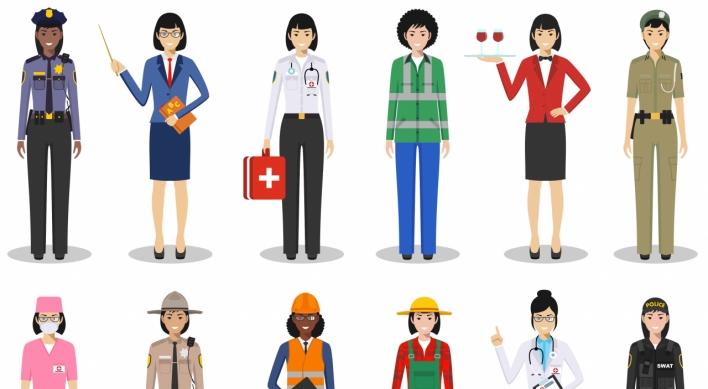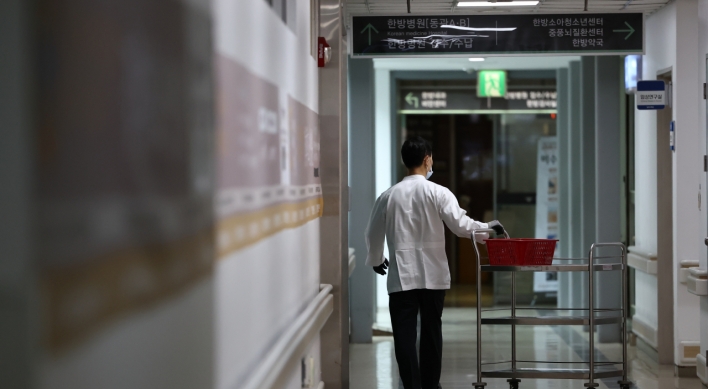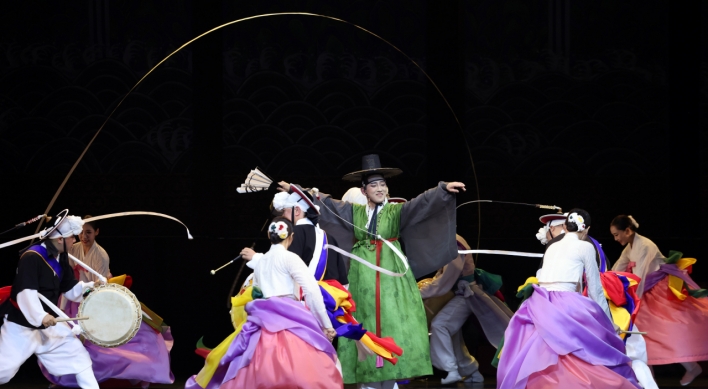Most of monitoring cases occurred during former government’s term: Cheong Wa Dae
Cheong Wa Dae and the main opposition Democratic United Party on Sunday traded barbs over the government’s allegedly illicit surveillance of civilians as the snowballing scandal has risen as a key issue impacting the upcoming general elections.
Their confrontation came a day after the presidential office said most of the surveillance cases reported in the media occurred during former late President Roh Moo-hyun’s term, a claim the DUP dismissed as a move to “unabashedly pass the buck.”
Cheong Wa Dae said that out of some 2,600 “surveillance documents,” more than 2,200 were produced by the Roh government, in an apparent counterattack on the DUP, which has stepped up its offensive against the ruling bloc ahead of the April 11 elections.
The DUP criticized it for “trying to water down its lapses in a move that defrauds the public.”
“(Cheong Wa Dae) confuses the public while it does not distinguish between reports of the (law enforcement authorities’) official inspection and documents of (illicit) surveillance,” DUP Rep. Park Young-sun told reporters. She heads the party’s strategic panel to investigate the Lee Myung-bak administration’s wrongdoings.
“The documents from the Roh government are official reports aimed at tightening discipline in officialdom. It should have confessed to (the surveillance activities) and apologized,” Park said.
The presidential office struck back, calling on the opposition party to refrain from “misleading the public and distorting facts.”
“We hope (the DUP) does not mislead the public as if (the surveillance) had not taken place during the former government, and that it does not distort the facts as if what the former government had done had been carried out by the current government,” Choe Geum-nak, senior presidential press secretary, told reporters.
“It is Cheong Wa Dae’s consistent position that it will take responsibility should there be things we are to blame for, after the truth is verified through any measures.”
Choe went further to list a series of civilians the former administration monitored. They included several politicians such as DUP Rep. Kim Young-hwan; Yoon Deok-seon, head of the basketball association in Incheon; and Kim Eui-hyeop, chief of the national chartered bus association.
Cheong Wa Dae and the main opposition Democratic United Party on Sunday traded barbs over the government’s allegedly illicit surveillance of civilians as the snowballing scandal has risen as a key issue impacting the upcoming general elections.
Their confrontation came a day after the presidential office said most of the surveillance cases reported in the media occurred during former late President Roh Moo-hyun’s term, a claim the DUP dismissed as a move to “unabashedly pass the buck.”
Cheong Wa Dae said that out of some 2,600 “surveillance documents,” more than 2,200 were produced by the Roh government, in an apparent counterattack on the DUP, which has stepped up its offensive against the ruling bloc ahead of the April 11 elections.
The DUP criticized it for “trying to water down its lapses in a move that defrauds the public.”
“(Cheong Wa Dae) confuses the public while it does not distinguish between reports of the (law enforcement authorities’) official inspection and documents of (illicit) surveillance,” DUP Rep. Park Young-sun told reporters. She heads the party’s strategic panel to investigate the Lee Myung-bak administration’s wrongdoings.
“The documents from the Roh government are official reports aimed at tightening discipline in officialdom. It should have confessed to (the surveillance activities) and apologized,” Park said.
The presidential office struck back, calling on the opposition party to refrain from “misleading the public and distorting facts.”
“We hope (the DUP) does not mislead the public as if (the surveillance) had not taken place during the former government, and that it does not distort the facts as if what the former government had done had been carried out by the current government,” Choe Geum-nak, senior presidential press secretary, told reporters.
“It is Cheong Wa Dae’s consistent position that it will take responsibility should there be things we are to blame for, after the truth is verified through any measures.”
Choe went further to list a series of civilians the former administration monitored. They included several politicians such as DUP Rep. Kim Young-hwan; Yoon Deok-seon, head of the basketball association in Incheon; and Kim Eui-hyeop, chief of the national chartered bus association.

Moon Jae-in, former chief of staff for late President Roh, repudiated Cheong Wa Dae’s claim, calling it a “frightening lie.” He stressed that the surveillance of civilians by the current government is a “criminal act.”
“What Cheong Wa Dae calls (surveillance) documents from the (Roh’s) Participatory Government is not from the government inspection division. It is what the police officials had compiled for their routine intelligence reporting,” he told reporters.
“That is what the police in charge of information should do. They have done that in the past and are doing that at present. That is their duty.”
“(Although I) wish it had not been true, 80 percent of the surveillance documents were from the former government, which shows both governments have illicitly monitored civilians,” Park said while on a campaign stop in Busan to support Saenuri Party candidates.
“There have been many reports that previous and current governments alike had conducted surveillance of me as well. I think we should completely change such wrong, old-fashioned politics now,” she said.
The Saenuri Party proposed a special probe into the alleged cases by an independent counsel, saying that state prosecutors, suspected of failing to get to the bottom of the cases in their 2010 investigation, cannot be trusted.
The DUP, however, dismissed the proposal, accusing the Saenuri Party of attempting to buy time as the general election is just 10 days away. The opposition pointed out that the process of getting parliamentary approval for the appointment of special counsel and setting up a probe team will take several months.
Instead, it proposed setting up a new prosecutorial team to take charge of the cases immediately. The party also demanded the resignation of Justice Minister Kwon Jae-jin, whom it suspects of tempering the initial 2010 probe into some cases.
“The special probe by an independent counsel (as proposed by the Saenuri Party) should not be used to stall for time. There should be an immediate measure to unearth the truth behind them,” DUP leader Han Myeong-sook told reporters.
Breaking its silence amid the intensifying political offensive against it, the presidential office said that more than 80 percent of some 2,600 surveillance cases took place while the late former President Roh Moo-hyun was in office. Han served as prime minister during the Roh administration.
The presidential press secretary said Saturday that the DUP should stop its political offensive based on “distorted facts.” He added the presidential office is willing to accept the Saenuri Party’s proposal of a special probe.
“More than 80 percent of the cases ― around 2,200 cases of the total the prosecution handed over to the court on a CD ― were not from the current administration, but from the former Roh Moo-hyun government,” Choe told reporters.
Choe added that most of the cases involving the incumbent government were already investigated during the 2010 probe.
“It is regrettable that the DUP revealed the cases as if they were new and use the cases politically, although the cases that took place during the current administration’s term were investigated two years ago,” he said.
PMO Minister Yim Jong-ryong said Sunday that the PMO’s ethics office probes public officials involved in corruption and that it does not target civilians.
“Civilians are not the subject of the office’s responsibility. Should a civilian be involved in corruption perpetrated by a public official, then we would check that civilian’s involvement,” he told reporters.
The high-profile scandal first erupted in 2010 after Kim Jong-ik, a businessman, claimed that the ethics division under Prime Minister’s Office illegally monitored him.
Kim posted a 25-minute video in June 2008 on his blog criticizing President Lee and his policies. He was a member of a group supportive of former President Roh, many of whose policies have been shunned by Lee.
Opposition parties and Lee’s political foes suspected that the illicit surveillance was carried out under the direction of the presidential office to stymie any attempts to impede Lee’s presidency.
The case was brought back into the spotlight after Jang Jin-soo, a former PMO official, claimed that senior officials from the presidential office had ordered him to destroy evidence related to the surveillance activities.
By Song Sang-ho (sshluck@heraldcorp.com)
-
Articles by Korea Herald











![[Herald Interview] Director of 'Goodbye Earth' aimed to ask how we would face apocalypse](http://res.heraldm.com/phpwas/restmb_idxmake.php?idx=644&simg=/content/image/2024/05/03/20240503050732_0.jpg&u=)







